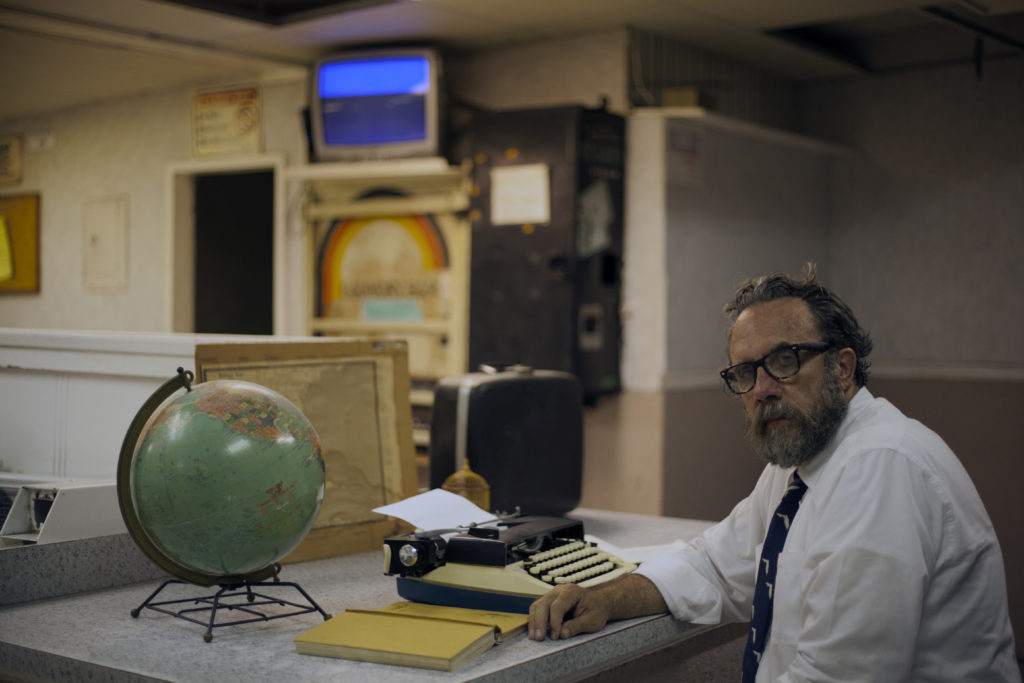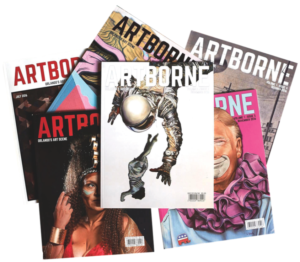Turkish tobacco smoke filled the bus. The wind and the temperature picked up as we descended to the Dead Sea from Jerusalem. Sand blew in through the open windows, stinging my face and creating a film over my exposed extremities and clothing. The drone of the Arab music became a meditation of repetition adding to what felt like a hallucination.
Stephanie held onto my hand. I thought about kissing her. It was just a thought, and I knew that it should just remain that way. We were getting stares. She was the only woman on the bus. It seemed like every dark eye unabashedly stared in her direction through the smoky, dusty haze. I knew she was scared, and it would be a very bad idea to kiss her for many reasons, but I couldn’t stop thinking about it.
I had thought about kissing her for the past few months since I arrived on the kibbutz in the Galilee near the Jordan River.
The night before, several of us had taken a short bus ride from Jerusalem to Bethlehem for Christmas Eve midnight mass. Following mass, we went to a club in Jerusalem’s New City that felt like it was somewhere in Europe, and we finally kissed to the unsolicited soundtrack of the The Smiths’ song that has the chorus “Hang the DJ.” We were drunk. I would have been alright without a soundtrack, but I probably needed to be drunk.
The two Aussie guys that were volunteers from the kibbutz left for another bar just before our embrace. The juxtaposition of the two events was not an accident. The story of her running away from one of the Aussies’ advances was now a part of an ignominious, anecdotal archive of our group. By all accounts, there was nothing untoward, just unwanted. I was happy being a part of a secret history. I was also self-conscious about being caught by the Aussie, because he would likely be hurt.
We kissed for a while. I don’t remember who initiated it. We held hands all the way back to the Arab hostel on the other side of Damascus Gate in the Old City. When we got to the rooftop where several bunk beds sat in the open air—covered by weather-faded, green, corrugated fiberglass awnings—we separated after seeing our friends had crashed for the night. We acknowledged our unspoken discretion by going back to the hallway leading to the stairs and kissing each other goodnight, and then went to separate beds, more like buddies than lovers.
A few hours later, prayer call woke me as the sounds of the scratchy record played through the tinny speakers set up all over the Arab section of the Old City. Prayer call always caught me off guard, especially when I went to sleep inebriated. I was probably inebriated every night I ever spent in Jerusalem.

West bank map. Image Courtesy of the CIA
Nobody was stirring. Snow flurries fell. The temperature had dropped quite a bit. I eventually fell asleep, alone, my night nearly restless.
As we pulled into Jericho, the music continued to hypnotize me. My memory suggests that it was Ryuichi Sakamoto’s Sheltering Sky soundtrack. I know it wasn’t that soundtrack. That film didn’t come out until 1990. This was 1988.
Secondhand smoke consumed me; sand continued to sting my face. Stephanie’s grip seemed more urgent than affectionate. The unknown surrounded me. I was in a culture that was a mystery to me. I was with someone who was a mystery to me.
Stinkpots lined the road. Throngs of IDF (Israeli Defense Forces) patrolled the edge of town. The mood was very High Plains Drifter. I joked about Clint Eastwood riding in from the hills with a stogie and a poncho. Stephanie understood my spaghetti western reference.
Jericho was, up until fairly recently, believed to be the oldest town in civilization. It may be the oldest in Western civilization. It looks like the location Sergio Leone would pick to shoot a film. Maybe the pop culture comparison helped to delude us from the reality that we were in one of the most politically charged areas of Israel during the First Intifada (Palestinian uprising). We were in a war zone. As an American, I was viewed as an ally to the uninvited occupiers.
I eyed a falafel stand. Two kids ran it. They both looked around twelve. They asked where I was from. I thought Stephanie was going to kill me when I told them the truth. She started whispering to me how I look like a Jew and/or an Israeli and how we’ll probably die because of that, and that being an American was possibly worse. She kept saying something about how those kids wouldn’t know the difference between an English, Australian, or a South African accent, and that I could have easily lied.
I talked to the kids for a while they gave me a free bottle of water. I tipped them a little more than the water would have cost. I told them they live in a beautiful place. The bigger kid said, “It’s the most beautiful place.”
Stephanie volunteered to the kids that she is German. They seemed uninterested.
I wished she would relax. She looked so vulnerable as she shadowed me and blurted out comments that seemed to be transmitted from someone else.
We were both grimy. She still looked cute with her blondish brown bob. Her jeans form-fit her slightly tall, long-legged body. Her shirt looked like gypsy travel wear from one of the markets. The John Lennon glasses gave her the look of the hippie traveler. I wore jeans and a black t-shirt. We were tan from working in the Galilee banana fields. She had to talk her way into that job after she was told it was a man’s job by several kibbutzniks.
She lit up a cigarette. It seemed like all Europeans were still smoking then. She had her back to me, brave in comparison to the shadowing. I looked at her nice bottom. I tried to be subtle. I remembered the time that I had to wake her up to come to work. She had overslept. She answered the door wearing a dark midriff t-shirt and green panties. Her legs looked strong. I was a little embarrassed. I know Germans and many Europeans don’t find anything prurient with the sight of someone in underclothes. I’m not so enlightened; maybe even prurient.
I think I liked the idea of falling in love in a place that was so exotic to me, but I wasn’t really in love. I was in love with the adventure. As I got used to Israel, it became less exotic. I loved going to a club in Jerusalem that felt like it was in an unspecified place in Europe, or watching the cheesy Easter reenactments of Christ’s walk down the Via Dolorosa toward his crucifixion, mostly because it was performed by English-speaking actors who performed more like they were in Monty Python’s Life of Brian. We had gone to the church of the Holy Sepulchre. It was Easter service in English for us tourists. Although I didn’t have any real spiritual ties, I loved the theater of the Greek Orthodox service. The country felt like it had a foot in the 20th century, but many things hadn’t changed in hundreds of years.
I started to talk to some men about catching the bus back to Tiberias. Two middle-aged Israeli men who were talking to the IDF offered us a ride. We accepted.

The yellow, early-seventies Subaru bounced down the uneven road. The car had air conditioning. I could hear it better than I could feel it. The radio played Louis Armstrong’s “What a Wonderful World” followed by the tune to a Christmas song. I’m not sure of the song’s title. Maybe it wasn’t originally a Christmas song. That was my one explanation of why it could be heard anytime of year on Israeli radio. Their stations were more surreal than formatted.
An Israeli folk song came on next. I understood some of it. It mentioned a world without peace. This prompted the driver into a diatribe about the Palestinians, and how they should be thankful for what they have. I bit my tongue. I wondered what that meant. I didn’t feel like another political discussion. They are way too easy to come by in Israel.
The Cure’s “Boys Don’t Cry” came on the radio. Stephanie and I smiled at each other. I don’t think I was all that crazy about The Cure until I got to Israel. The Cure became comfort food in Israel. Oh yeah, The Cure.
The driver was still talking about Palestinians. I wanted him to shut up. I caught bits and pieces of what he was saying. He asked us why we were in Jericho. Stephanie told them we took an Arab bus from Jerusalem. The two men led by the driver told her that it was foolish and dangerous to come to the West Bank. I asked them what they were doing there. Stephanie apologized for me and nudged me as if to say “shut up.” Nobody answered me. Stephanie shook her hand away from mine. She was teaching me a lesson, or maybe she was fed up with me.
The driver said, “You don’t understand. Israel can be very, very dangerous, especially the West Bank.”
He kept repeating how dangerous it was. The theme from The Good, The Bad, and The Ugly came on. The men were quiet for a little while. I nudged Stephanie when the song came on. We started to laugh.
The driver turned around to tell us, “The West Bank is very, very dangerous.”
We laughed harder as he said that. He looked angry. I tried to explain to him the irony of the song, and the spaghetti western backdrop.
He kept driving. Nobody said anything that didn’t seem necessary for the rest of the ride.
They dropped us off in Tiberias near our kibbutz. I had almost forgotten it was Christmas.
